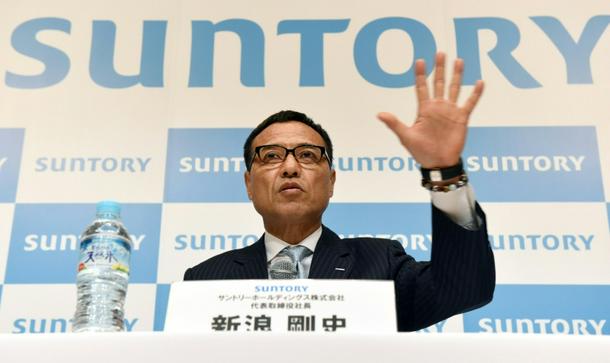
Takeshi Niinami joined Suntory Holdings in 2014, after serving as CEO of convenience store chain Lawson
Tokyo (AFP) - One of Japan’s best-known business people has resigned as CEO of beverage giant Suntory after police raided his house in an illegal drugs probe, the company and media reports said Tuesday.
Takeshi Niinami, 66, was put under police investigation regarding “supplements he purchased under the belief that they were legal,” Suntory president Nobuhiro Torii told a news conference.
Police searched Niinami’s house in August, but he has denied involvement, and no illegal drugs have been found, according to Jiji Press and other media.
The company on Monday accepted Niinami’s “request to resign for personal reasons” following discussions after he returned to Japan, Torii said.
Authorities will determine whether the supplements are illegal, Torii said, without giving further details of the case.
However, he said Suntory concluded that Niinami’s actions “inevitably fall short of the qualities required” of CEO.
Citing unnamed investigators, broadcaster Nippon TV said Niinami was suspected of importing products containing THC, an active ingredient in cannabis, from the United States.
During the search Niinami reportedly told police that “a female acquaintance sent it to him unsolicited”.
Niinami, who also serves as the head of the country’s business lobby, joined Suntory Holdings in 2014, after serving as CEO of convenience store chain Lawson.
Suntory is known for its world-famous whisky and the company’s brands include Jim Beam bourbon, Laphroaig whisky and Courvoisier cognac.
It acquired the US maker of Jim Beam for $16 billion, a few months before Niinami joined, to become one of the world’s biggest spirits makers.
Niinami is known as a vocal business leader.
He openly criticised Japan’s former biggest boyband agency following revelations about decades of sex abuse by its late founder in 2023.
Japan has strict drug laws and possession can result in jail time.
In 2024, the German-born former CEO of optical equipment firm Olympus was found guilty of a drug charge.
In 2017, a German executive working at Volkswagen’s Tokyo office was arrested on suspicion of drug use.